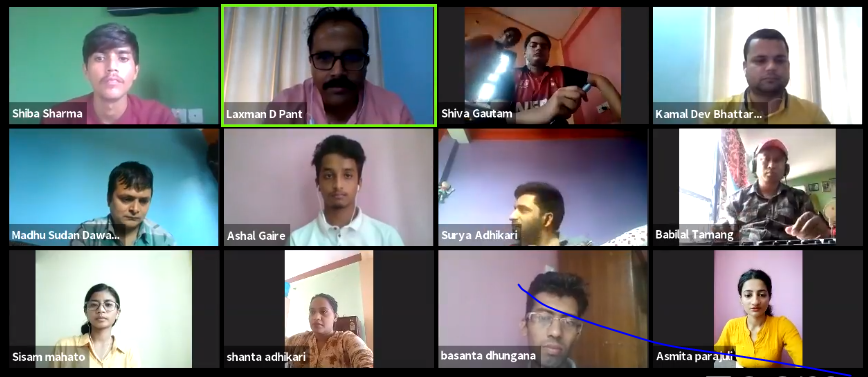
Kathmandu (Pahichan) July 31 – While carrying out their duty to inform people, journalists should always practice an ethical, responsible and credible journalism in any situation — the COVID-19 pandemic context or normal circumstances.
Speakers said this at a virtual training programme organized by Media Action Nepal in collaboration with the U.S Embassy in Nepal. Sixteen journalists, including six female reporters, of Chitwan representing different media outlets were part of the three-day training that concluded today.
In the training programme, participants learned various emerging issues of journalism ranging from credibility, fake information to misinformation.
Inaugurating the training, Acting Public Affairs Officer of the U.S Embassy in Nepal, Mr. Curtis M. Chan, stated that misinformation and disinformation is a burning issue and urged the participants to take full advantage of this training to strengthen their professional skills and help practice responsible journalism in Nepal. Chairperson of Media Action Nepal Mr. Laxman Datt Pant, the lead trainer of the training, said the canons of journalism such as professionalism, decency, responsibility, press freedom and accuracy are unique. He said maintaining truth and accuracy, impartiality and inclusion is the responsibility of media and journalists. Prof. Dr. Mofizur Rahman from the Dhaka University, highlighted how fake news is multidisciplinary in nature. He listed out characteristics of fake news and provided the trainees with vivid examples of incidents of fake news in the near past. He also highlighted ways of detecting fake news, namely experts’ verification, speaker profiles, linguistic cues, etc and provided the participants with links to websites that help with fact-checking and verification.
On the second day of the training, the participants learned current trends of fake news in Nepal on the basis of a study of newspapers and online portals. Mr. Umesh Shrestha, informed the participants about a series of fake news in Nepali newspapers and online portals. Also speaking in the second session, Pant provided the participants with statistics of fake news from a research book published by Media Action Nepal.
The third session of the training was on preventing misleading photographic messages. Mr. Chandra Shekhar Karki, senior photojournalist, explained the participants about how pictures can be manipulated causing misinterpretation among audiences.Trainer Mr. Kamal Dev Bhattarai, current talked about media’s role in strengthening democracy. He explained the relationship between media and democracy, reminding the participants of the media’s role as a watchdog and pointed out how vital press freedom is to ensure transparency and informed citizenry.
The training programme ended with trainers urging participants to take initiatives of practicing responsible and credible journalism by identifying what they have been doing wrong so far and improving their skills by using the knowledge they have gained.
Copyright © All right reserved to pahichan.com Site By: Sobij.